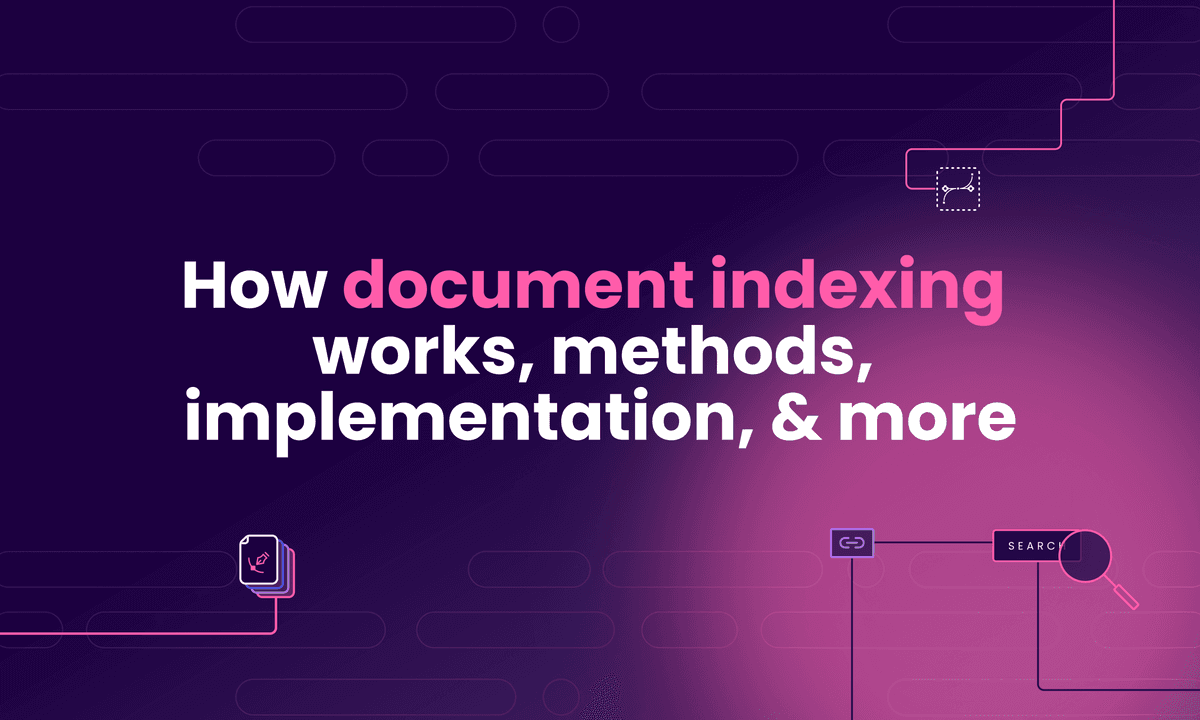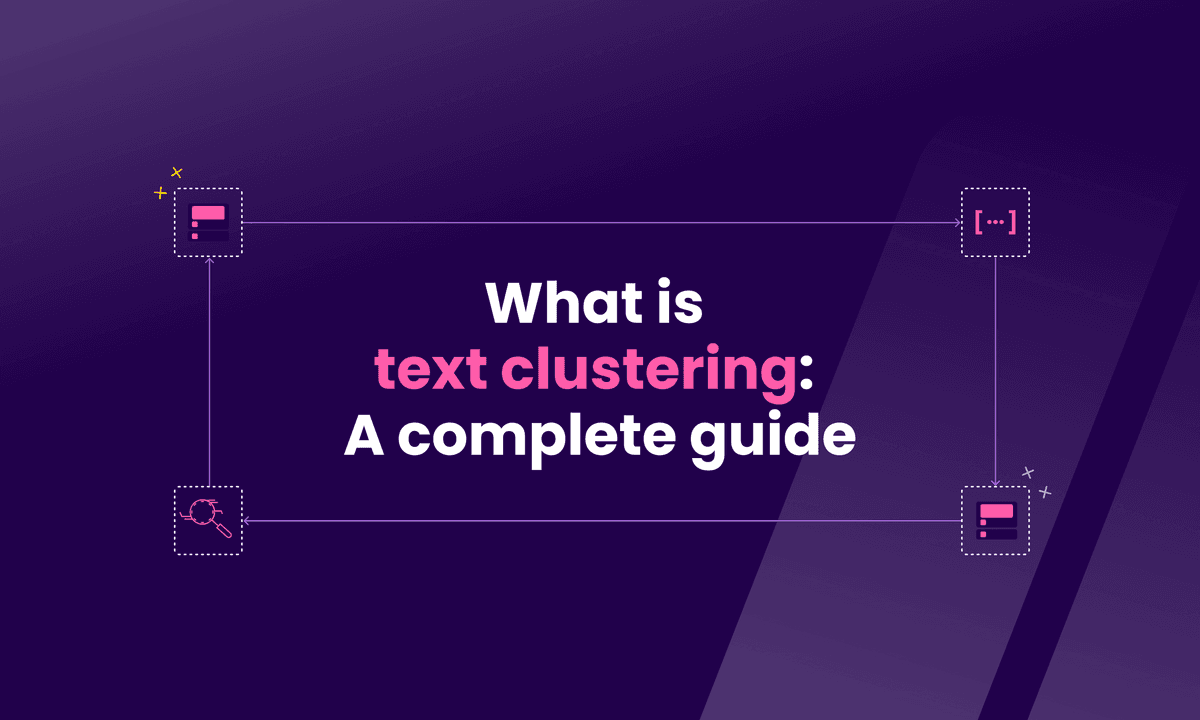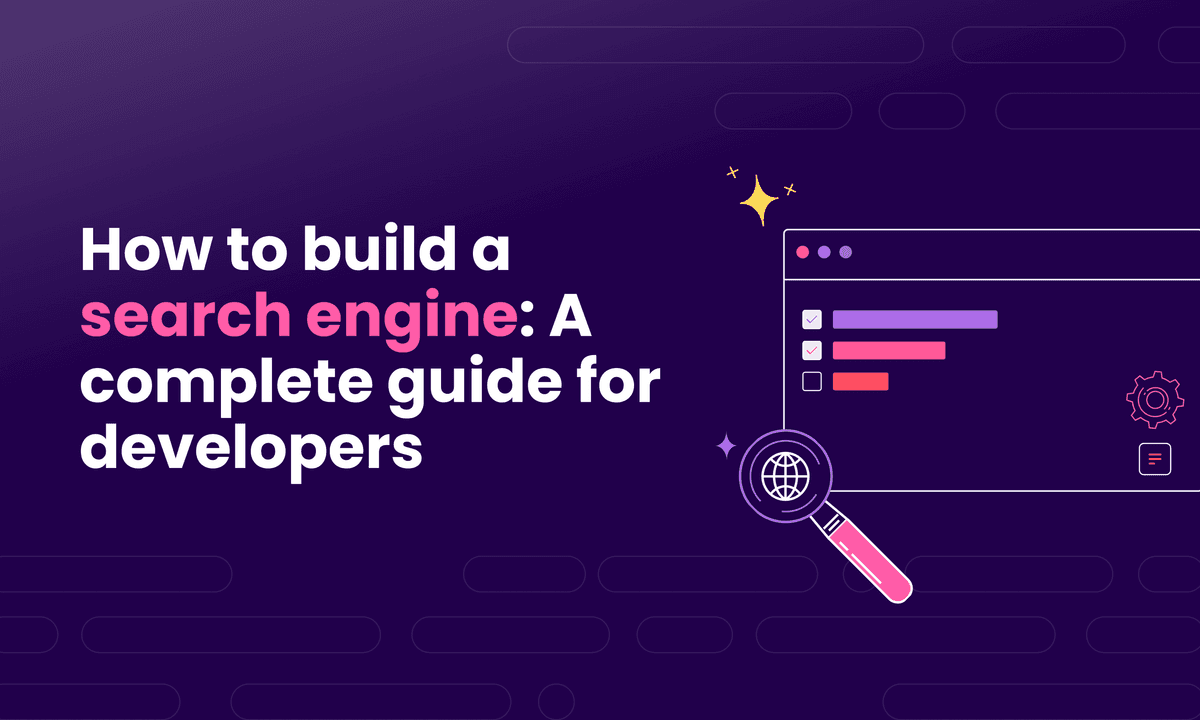What is federated search: Complete guide [2026]
Discover what federated search is all about and how it works. See the different types, the benefits, challenges, tools, and more.
![What is federated search: Complete guide [2026]](/_next/image?url=https%3A%2F%2Funable-actionable-car.media.strapiapp.com%2FWhat_is_federated_search_Complete_guide_9747823f09.png&w=3840&q=75)
In this article
Federated search allows fetching information from several data sources with a single search query, which triggers an engine that seamlessly aggregates the information and outputs the key results.
This technology is helpful for enterprises that often use several databases and other storage solutions and require an internal search engine that guarantees fast and unified information retrieval.
In this piece, we will examine federated search's workings and applications in greater detail, highlighting its benefits and potential challenges.
What is federated search?
Federated search is a search system that uses a single query to retrieve information simultaneously across multiple indices, such as databases, APIs, and cloud storage solutions.
Unlike searching on a single index, which grabs only the most accurate results for that document, federated search aggregates information from all available sources and outputs the most relevant results from the aggregated dataset.
This information retrieval mechanism is a crucial feature for SaaS applications, where users frequently need to search through all available resources regardless of type. An example you might be familiar with is searching in Slack—a single search bar to find users, messages, and shared documents.

What are the benefits of federated search?
Federated search brings overall efficiency in retrieving information for organizations. Some of the key benefits associated with this technology are:
- Search across multiple sources: With only one search bar, companies can query key information from all their data sources, including databases, Google Sheets, APIs, and cloud solutions.
- Enhance user experience: Since federated search requires only one widget or input to fetch all relevant data, there’s no need for multiple menus or filters to enhance the federated search results. Making the search experience and the overall interface more straightforward.
- More relevant results: The system matches the query against a large dataset of aggregated data sources. Therefore, the engine will look for the most relevant results across all enterprise data instead of returning lists of relevant results from separate sources.
- Find forgotten content: Sometimes, with such diverse data sources, the user may struggle to know precisely where they saved the meeting minutes or what folder has that great resume someone sent a few months ago. Federated search fixes this with a single search input that, with the right keywords, can fetch this information or even essential items they hadn’t initially considered.
- Increased productivity: Time spent looking for the correct information in emails, databases, etc., can be drastically reduced, allowing users to concentrate on more productive tasks.
What are the different types of federated search?
There are four different types of federated search. You should carefully choose them according to your company’s needs.

Now that we've quickly reviewed their pros and cons, let's explore each of these federated search types individually.
Search-time merging
Search-time merging dynamically queries multiple indices in real-time, combining the results of different data sources. This approach involves maintaining a separate index instead of a unified one.
The main perk of search-time merging is that you don’t need to create a new system that aggregates all data sources into one dataset.
In addition, you can rely on up-to-date information from constantly updated data sources. Therefore, this search type is ideal for real-time databases or live web sources.
The main drawback of this technology is its dependency on the system’s response times, which creates latency and returns outputs slower than other search types.
Index-time merging
Index-time merging aggregates the different enterprise data sources in one centralized index before the queries occur. This architecture makes data retrieval much faster since a single source provides the results list.
While this method is fast and does not require an index for each separate data source, it may not output the most updated enterprise information. Constant synchronization is necessary to maintain accuracy and mitigate this problem.
This search type can be handy for companies that manage data sources that are not updated frequently and where real-time information is not a required feature.
Federated search interface
The federated search interface is similar to the search-time merging method. Users can retrieve results from diverse systems through a unified interface instead of querying a centralized index.
This solution's front-end layer abstracts the back-end complexity and presents the results as lists indicating their source.
This interface provides a better customer experience, allowing users to query various sources simultaneously. Advanced features, such as faceted search and relevance ranking, can also be added to the interface.
The challenges with this technology are mostly related to the complexity of creating the abstraction mechanism, and many websites are not prepared to incorporate this design.
Hybrid federated search
Hybrid federated search combines search-time and index-time merging. It uses a centralized approach, aggregating data sources in one index while querying other indices separately.
This dual approach optimizes performance and speed by querying less frequently updated information using the centralized index while obtaining real-time data.
The system unifies the relevant outputs from the centralized and remaining sources into one final output list. Therefore, while this solution is faster than search-time merging, it can still lead to latency and slow performance.
How does federated search work?
Here’s a breakdown of how federated search works.

Query submission: The user starts by typing terms or keywords into a single search bar or interface. This interface hides the complexity of searching many sources behind the scenes.
Routing: Once the user enters the query, the search tool identifies which databases, APIs, cloud services, and other data sources are relevant to tackle. Once identified, the same query is sent to all these sources simultaneously.
Query processing: The search begins for each target index. Depending on the search type, there can be a centralized index or multiple. This choice also influences the response time and accuracy.
Obtaining relevant results: Depending on the search type, a single or several lists are obtained with the most relevant results across multiple data sources.
When the architecture uses multiple lists, merging data requires more preprocessing steps. This is due to duplicate results and formatting, such as converting DateTime elements and strings to numbers.
Also, ensuring accuracy in the final data is vital since each index sorts the relevancy depending on its information. One data source may display three results as the most relevant, while similar results are placed last on the list in another and more extensive source.
Final output: The system displays the final results in a single list, often with labels showing where each result came from.
Additionally, the system must be optimized and maintained: adding new indices or simply optimizing the capabilities requires updates and maintenance.
In the steps involving the federated search workflow, it is key to maintain strong security measures throughout the process, apply preprocessing functions, and manage latency when some sources may take more time to deliver results.
What are common use cases for federated search?
Federated search can serve various applications and company profiles. These are some of the most common use cases.
- Enterprise search: Large organizations can easily access their different data sources of information (emails, chats, CRMs, cloud storage, and databases) with a single input widget or interface. This enhances their productivity across several departments.
- E-commerce and marketplaces: E-commerce websites have high standards for delivering fast and accurate information. Therefore, federated search allows these companies to retrieve information in real-time from product listings, reviews, inventory data, and more, ensuring a better user experience and increasing customer satisfaction.
- Academic and research portals: Researchers rely on journals, institutional repositories, and databases. This technology can provide scholars with a unified research experience that accelerates knowledge discovery.
- Healthcare and medical records: Federated search enables instant retrieval of relevant medical information from patients, medical notes, and medical databases, enhancing diagnosis accuracy and treatment speed. It also supports compliance with privacy regulations by ensuring security and access control.
- Government and legal systems: Governments manage extensive records, from public policies to legal case files. Federated search makes fetching access to legal precedents, statutes, and regulatory documents easy, helping law firms, policymakers, and public agencies make informed decisions. It also enhances transparency and improves citizen access to public records.
- Media and publishing: Journalists and content creators do extensive research across multiple content sources, such as archives, news wires, social media, and internal databases. Therefore, they need a tool that helps them find articles, blogs, or archives faster, resulting in improved productivity.
- Customer support and help desks: Support teams need quick answers from knowledge bases, support tickets, and FAQs. You can consolidate these resources with federated search and decrease the response times, which improves customer satisfaction while reducing operational costs.
Depending on the application, you should carefully consider the right federated search type. For instance, e-commerce companies require real-time data, while government and legal systems may need to retrieve information quickly. Therefore, the former can leverage a hybrid system, while the latter can use a unified index approach.
What are the challenges of federated search?
Several challenges arise during the federated search process. The main ones are:
- Data structure: Different indices have different data sources, such as text files, JSON, CSVs, and databases. Therefore, you must consider preprocessing steps and natural language processing (NLP) techniques to merge data from various structures and grasp their relevance.
- Sorting and scoring results: Indices output the relevant results using mathematical functions like cosine similarity, often used in machine learning (ML). Smaller datasets may return less accurate results. When merged with more extensive data sources, extra preprocessing steps are needed to avoid noise and irrelevant results.
- Language nuances: International companies often have departments in different countries that use their native languages. Querying indices, primarily written in a specific dialect, must be translated into a unified language for the final results.
- Query robustness: Search engines do not always recognize special characters like quotes or hyphens to refine queries.
- Availability and timeout: Federated search engines that offer real-time data may take longer than expected to respond after the user submits the query. This can increase the bounce rate and make users less prone to revisit the website.
- Data pipeline: The efficiency and quality of the data pipeline are key to ensuring seamless connection of all indices and error-free application of data preprocessing steps. Therefore, these pipelines can become very robust, requiring third parties for monitoring and security.
A good team of experts is key to creating a robust federated search engine that ensures seamless connections between different sources, security, high performance, and ease of use.
How federated search improves developer experience
Implementing federated search leads to a more streamlined search implementation process. With federated search, results are delivered in a unified list, simplifying front-end development. This goes beyond multi-index search because it comes without the added complexity of implementing front-end logic to merge, sort, and paginate the results.
In this setup, the relevance of documents can be further fine-tuned thanks to granular, per-index configuration. This allows tailoring the relevancy settings to specific data types (a specific index) rather than the entire dataset (all indices). As a federated search request comes in, the search engine can ensure that the most relevant information rises to the top.
Federated search also simplifies extending the search functionality if new types of documents need to be included. Instead of revisiting the relevancy for the entire dataset, you'll only need to focus on configuring the relevancy settings for the new document type.
What are some examples of federated search tools?
Meilisearch

Source: Meilisearch
Our platform is great if you need speed and ease of use. You can submit data in different formats on the Meilisearch cloud or through an API and easily integrate hybrid search and other search features into your enterprise infrastructure. All of this is backed by extensive documentation and strong customer support.
Best for: Due to its performance and speed for data retrieval, it is best for enterprises that manage various data sources and require typo tolerance, as well as education software companies.
Easy federated search with Meilisearch
If you need speed and manage many data sources, Meilisearch is the best way to implement federated search.
Qatalog

Source: G2
This solution can access data sources without creating indices. Some connectors are SharePoint, Google Drive, Salesforce, Zendesk, BigQuerry, and Snowflake. The indexless feature helps reduce latency and return real-time data.
Best for: Suitable for E-commerce websites and enterprises that require real-time data with zero or almost zero latency.
Hyland

Source: G2
This tool comes with several integrations and allows for creating image indices. It also introduces detectors of confidential information to protect companies from exposing it.
Best for: Enterprise search and healthcare companies that often rely on extensive image databases.
Gosearch

Source: G2
This tool presents an easy-to-implement unified enterprise search solution that is fast and enhanced with a generative AI chatbot. It also comes with several integrations, such as Zendesk, Slack, OneDrive, Jira, and more.
Best for: IT teams and Human Resources due to its rapid implementation and chatbot integration in the search engine.
Frequently asked questions (FAQs)
Some of the most common questions involving federated search are the following:
How does federated search compare to unified search?
Unified search is a subtype of federated search, which uses a centralized pre-built index. It offers faster results but lacks real-time data. Other types of federated search, such as hybrid and search-time merging, use several indices, which make them slower due to the latency of some data sources, but they can deliver real-time results.
What are the key components of a federated search system?
The federated search system requires a user-friendly interface that allows the user to input a query. The system sends this query to a single index or multiple indices. When numerous indices are involved, each uses its ranking mechanism to sort the most relevant results. The system uses a robust data pipeline to handle syntax, various languages, formats, and other data processing requirements. Finally, security is key to ensuring data protection.
What are the drawbacks of federated search?
The system can be time-consuming to set up and requires constant optimization. Several experts are involved in creating a seamless user interface that delivers speed and performance while abstracting all the back-end steps, which include cleaning the data, applying strong security measures, and ensuring it displays the most relevant results to the user.
What are some open-source federated search solutions?
Some open-source federated search solutions provide a clear view of the system's backbone and allow seamless integration through their API. Meilisearch, for instance, provides extensive documentation in several programming languages (Java, PHP, Python, JavaScript, and more). Others, such as Milvus and OpenSearch, also open-source their code on GitHub.
Cut through the clutter with federated search
Federated search enables performing searches against multiple indices of a search engine and returns a single, consolidated list of results. With a search engine that supports federated search, developers can build more relevant user search experiences without incurring additional complexity.
Overall, this tool boosts productivity and reduces costs across several divisions inside a company while enhancing customer support and user experience.
Federated search is available in Meilisearch 1.10 and higher. The documentation explains how to implement federated search with Meilisearch.


